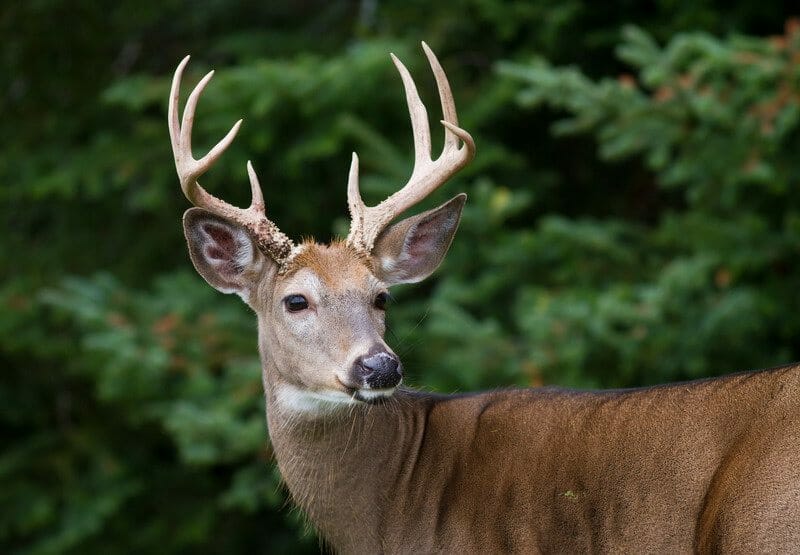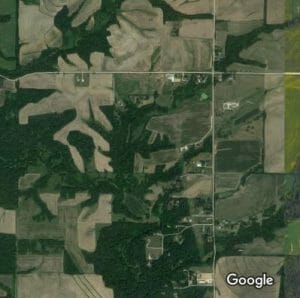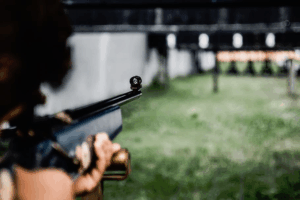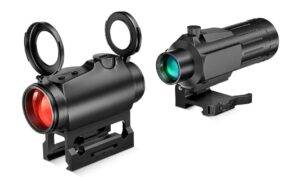
Closeup of majestic whitetail deer buck framed by dense forest.
 It is early on a Saturday morning. Instead of sleeping in, you are already up and enjoying a cup of coffee as you look out the bay window into your yard. You are already contemplating the start of hunting season when you suddenly realize you haven’t yet secured a piece of land. Your mind immediately starts to race as you consider everything that goes into finding that perfect hunting land lease.
It is early on a Saturday morning. Instead of sleeping in, you are already up and enjoying a cup of coffee as you look out the bay window into your yard. You are already contemplating the start of hunting season when you suddenly realize you haven’t yet secured a piece of land. Your mind immediately starts to race as you consider everything that goes into finding that perfect hunting land lease.
The first thing to remember is to not panic. The second is that there is no such thing as a ‘perfect’ hunting land lease. Every piece of property has its strong and weak points that need to be considered. The key is finding the best piece of land you can based on what you have to work with.
Check out Hunting Insurance Coverage
The first step in finding your hunting land lease is to find out how much insurance coverage is going to cost. Hunting insurance coverage should not be a big deal financially speaking, but it may play into how much you can afford to spend on the lease itself. And remember that larger pieces of property with accommodations and amenities will cost more to insure than smaller pieces of land with absolutely no perks.
The American Hunting Lease Association suggests insurance coverage that includes adequate liability, member-to-member coverage, coverage for guests, and additional coverage for fire damage, medical expenses, and liability for property damage related to the use of tree stands and ATVs.
Look at Aerial Shots
 Once the hunting insurance question is answered, the next step is to look at aerial shots of potential properties. You might look in real estate listings to find available land, or you might check with your local hunting club or an online leasing association as well. No matter how you get leads, use something like Google Maps to get a bird’s eye view of properties before you make appointments to see them.
Once the hunting insurance question is answered, the next step is to look at aerial shots of potential properties. You might look in real estate listings to find available land, or you might check with your local hunting club or an online leasing association as well. No matter how you get leads, use something like Google Maps to get a bird’s eye view of properties before you make appointments to see them.
This step can help you weed out undesirable properties so that you do not waste time going to look at them. Aerial shots can take a lengthy list of potential candidates and narrow it down to a more targeted shortlist.
Walk the Land
Next to actually purchasing insurance, this could be the most important step in finding a good hunting land lease. It is desirable to actually walk the land and see the terrain for yourself. You want to look for trails, rubs and scrapes, and anything else that would indicate an adequate supply of the game you intend to hunt. You also want to assess how the land lays so you can determine the best hunting spots. Finally, you want to know and understand land boundaries before you sign a lease. Boundaries will influence how, when, and where you hunt.
Speak with the Landowner
Lastly, finding a good hunting land lease require spending some time with the landowner. The idea is to have a conversation that is more in-depth than simply the basics of the lease. Get to know how the landowner truly feels about hunting. Find out if he or she is a hunter as well.
The more time spent in conversation with the landowner, the easier it will be for you to gauge whether you will be able to work with that person. The last thing you want is to sign a hunting land lease with an owner you will find difficult get along with down the road.
There is no such thing as a perfect hunting land lease. But good properties are out there if you’re willing to look.








